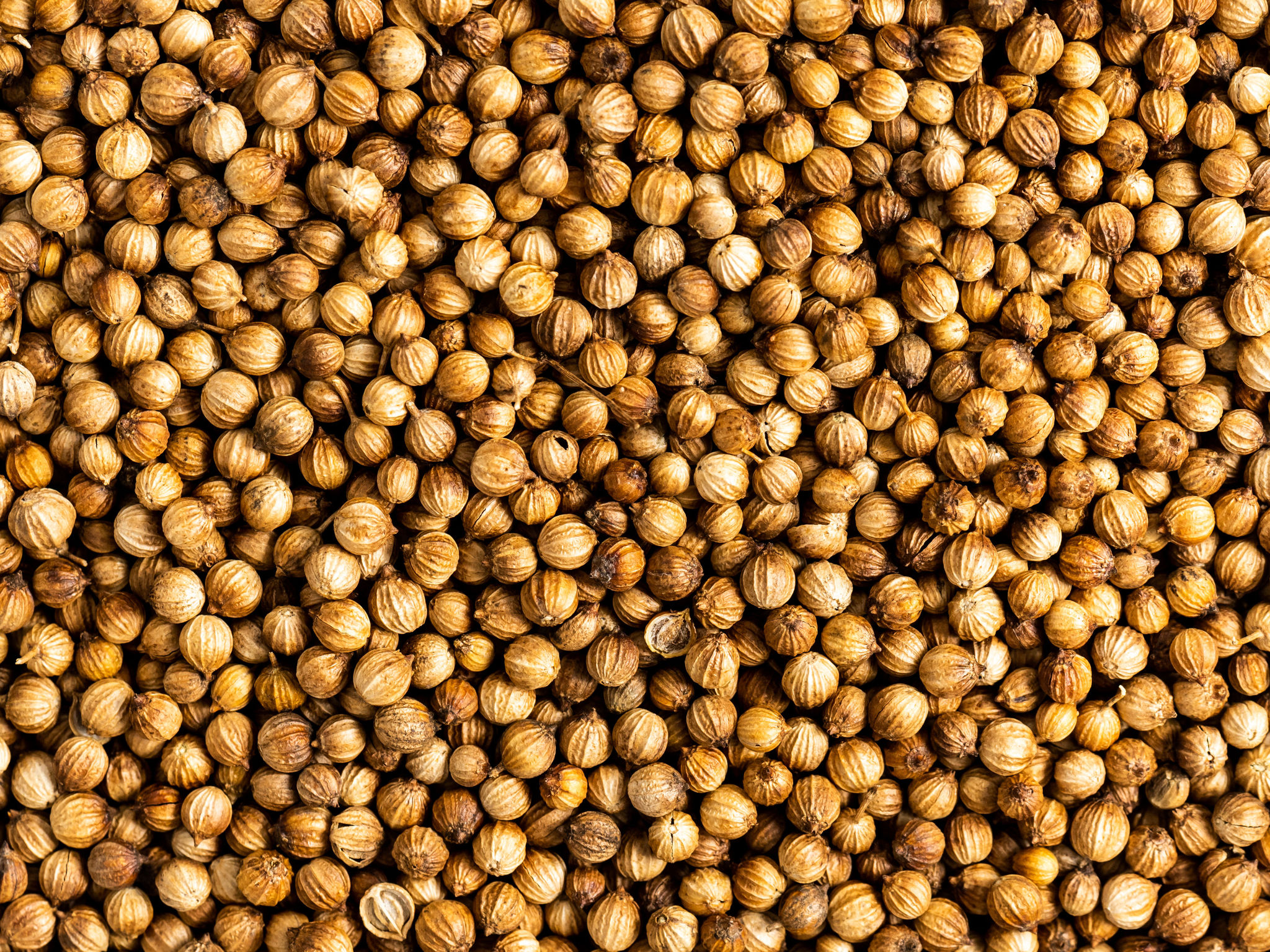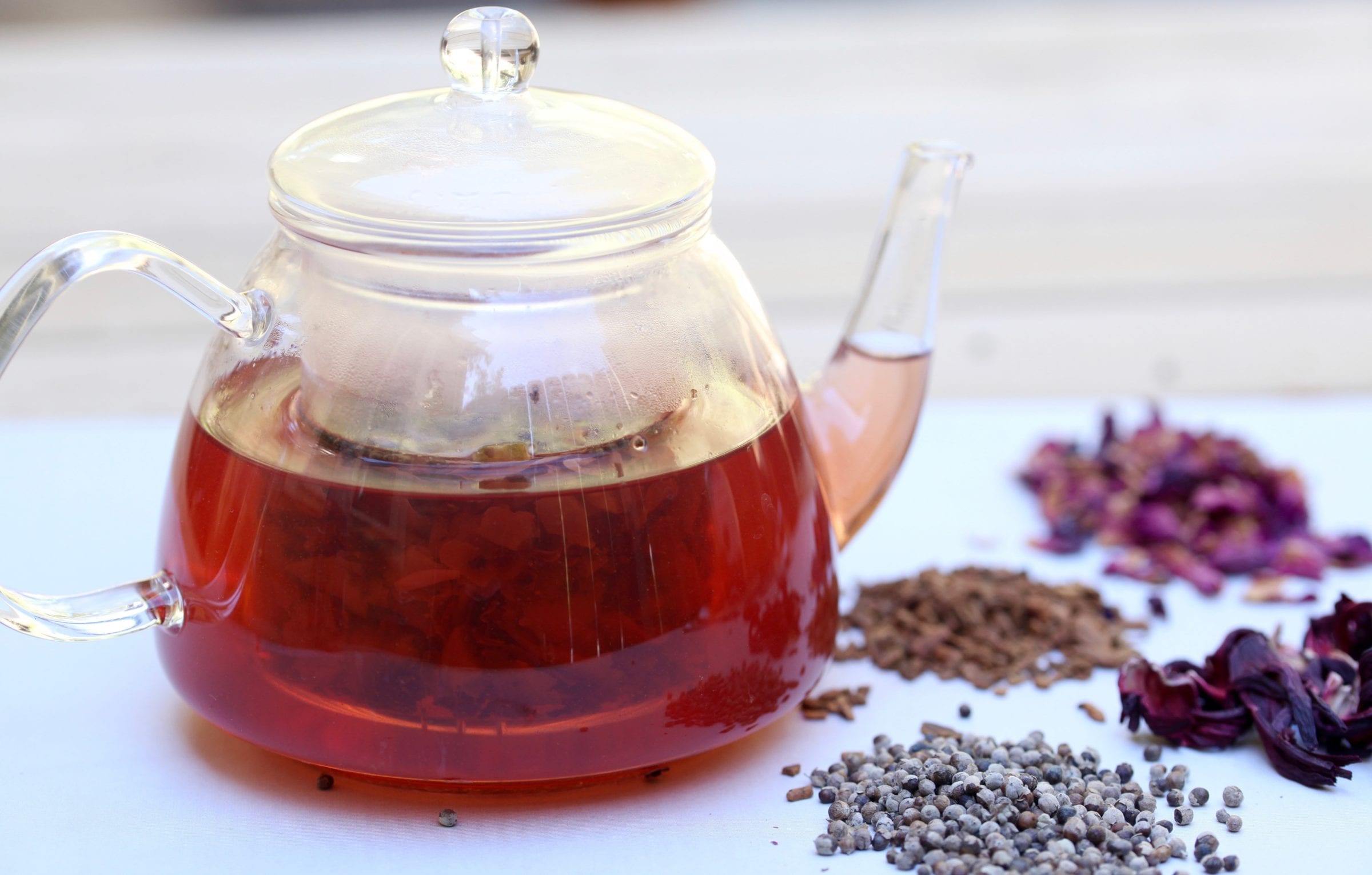For those of you who don’t know, coriander or cilantro is a favorite herb whose usage in dishes are limitless including garnishes, salads, dips, and many more.
They provide a sweet and zesty flavor to all the dishes.
For people out of coriander or maybe those who can’t bear the smell of it, this article will provide a solution to both the problems.
This article provides more than five natural coriander seed substitutes that can save the day.
Besides the substitutes, this article also includes topics such as:
- Cilantro vs. coriander: Are they the same?
- Health benefits of coriander
- Substitutes for coriander
Health Benefits of Using Coriander
Corianders have been used to treat many health problems such as indigestion, diabetes, rheumatism, and pain in the joints [2].
In a journal published in 2014, showed that C. sativum L. is known to prevent skin photoaging [3].
The experiment conducted used Cilantro ethanol extract (CSE) which showed protective effects against UVB-induced skin photoaging in normal human dermal fibroblasts [3].
Coriander seeds, if taken regularly can lower the concentration of low-density lipoproteins (blood cholesterol) and increase the concentration of high-density lipoproteins (good cholesterol) [4].
Due to their anti-inflammatory properties, they are known to reduce the symptoms of diseases like arthritis.
Along with anti-inflammatory properties, it’s known to have antibacterial and anti-fungal properties [5].
They are also known to contain a high content of dietary fiber.
Hence, both the coriander seeds and cilantro are not only used for culinary, but also for medicinal purposes.
Key takeaway: Corianders have both culinary and medicinal purposes. They provide numerous health benefits when consumed regularly.
Substitutes for Coriander
Usually, coriander leaves are chopped and used with dips or in salads, providing rich lemony scent and refreshing aroma.
However, some people detest the smell and taste of it and prefer it removed from their food, whereas some people who love it and can’t imagine a dish without it, might be out of coriander.
From experience, I have seen that just by removing a simple ingredient can change the taste of the meal as a whole.
So it’s better to use substitutes instead!
In this way, you will get the desired flavor with a different ingredient allowing you to enjoy your meal to the fullest!
Below are some substitutes used for coriander:
1. Cumin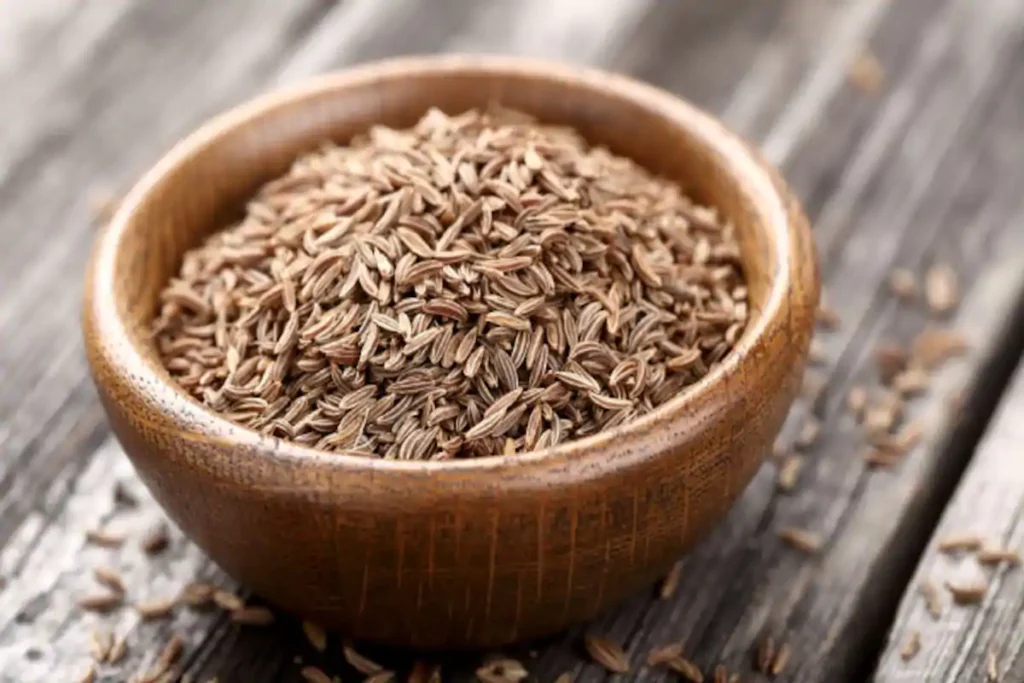
Cumin, a spice that comes from the plant species Cuminum cyminum.
Cumin seeds, either in dried or ground form, is an excellent substitute for coriander seeds.
These cumin seeds are great for people who don’t like the taste of coriander.
Its taste is quite similar to that of coriander without the zesty lemon flavor, but it’s great once it reaches the pain!
Apart from being used as a substitute, it has many benefits as it helps in weight loss, lowers cholesterol, reduces stomach pain and bloating [6].
READ MORE: 22 Home Remedies for Weight Loss (No.12 is the easiest)
2. Cloves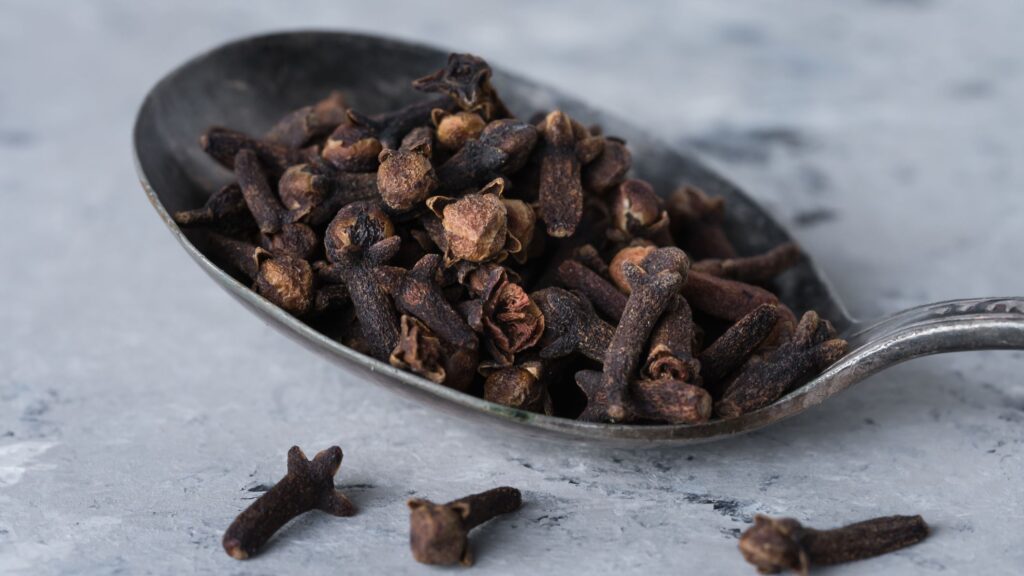
Cloves are sweet and aromatic buds that have a hint of anise.
Cloves are often interchanged with coriander and substituted for coriander.
Although it lacks the lemony flavor, it serves its purpose well, as a replacement for coriander.
Moreover, consuming cloves provide relief from upset stomach, for a toothache, and from throat and mouth inflammation [7].
READ MORE: 13 Essential Oils for Inflammation & How to Use Them
3. Parsley
One of the best substitutes for coriander is parsley.
They have a similar and refreshing taste to that of coriander, enough to bring a zing to your dish.
People use chopped parsley for dips instead of coriander.
It’s best for those people who don’t like the strong smell of coriander, as parsley has a milder flavor, making is the best substitute!
Parsley also provides numerous health benefits such as a diuretic, antiseptic of the urinary tract, anti-urolithiasis, anti-dote and anti-inflammatory [8].
READ MORE: 17 Home Remedies for Kidney Infection (Backed by Science)
4. Caraway Seeds
The scientific name of caraway seed is Carum Carvi but is sometimes known by the name Apium Carvi, depending on the localization.
At first, hearing caraway seeds may sound like something you’ve never heard of, but caraway seeds are extremely popular and abundantly found in Europe and the middle east, as well as most of northern Africa.
Caraway seeds, being highly aromatic, have a distinctive earthy anise flavor, are used as a substitute to coriander.
Many people take caraway seeds as it is by mouth as it helps for digestive problems including heartburn, bloating, gas, loss of appetite, and mild spasms of the stomach and intestines [9].
READ MORE: 12 Simple Home Remedies for Bloating & How to Use Them
5. Cardamom Pods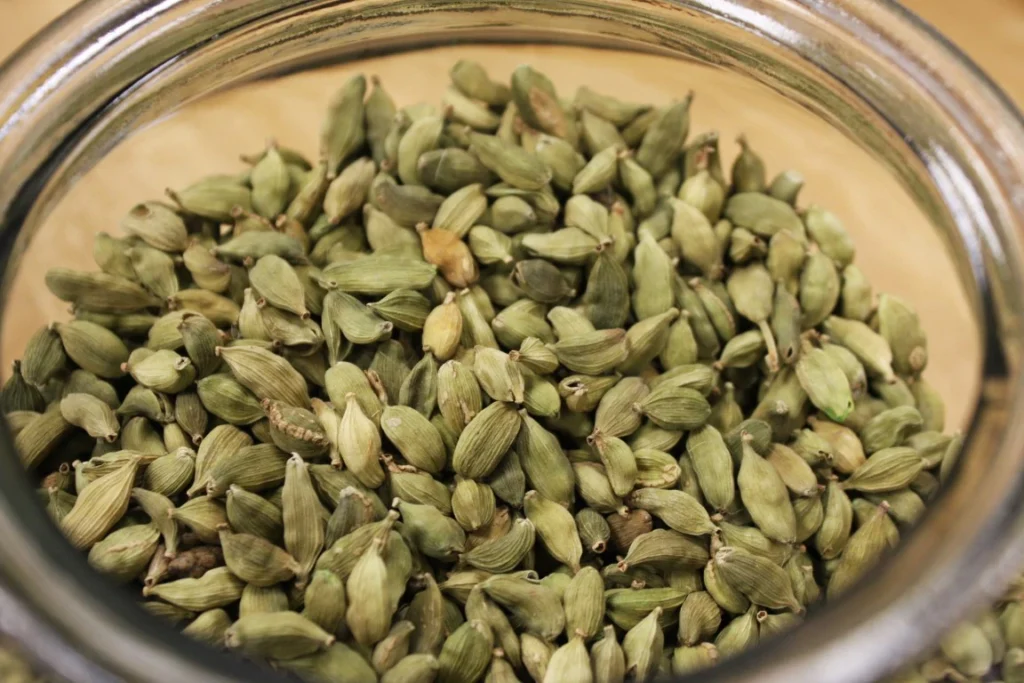
Cardamom, a spice has a strong, pungent flavor with a hint of lemon, mint, and smoke.
Cardamom pods contain several seeds, but some people prefer grinding the pods.
If you want a dish that has a strong punch to it, then cardamom seed is the one, but make sure to adjust the taste often accordingly.
There are several ways of using cardamom in food which includes baking for puddings, spice cakes, pears, and so forth or adding in drinks like coffee or tea.
Cardamom also comes with several health benefits which include heartburn, intestinal spasms, irritable bowel syndrome (IBS), diarrhea, constipation, liver and gallbladder complaints, and loss of appetite [10].
6. Curry Powder
Curry powder, mostly used in Indian cuisine, is also a good substitute to coriander.
It’s a combination of many herbs and spices such as turmeric, coriander seeds, cumin seeds, dried chilies, black pepper, curry leaves, mustard seeds, cardamom cloves, cinnamon, nutmeg and bay leaves, all of which adds great flavor to any dish.
Curry does contain coriander, and this is a great substitute for people who are out of coriander when it’s needed the most.
This simple ingredient adds warmth to a dish by adding a pinch of it to soups, sprinkle over a stir-fry or even to an authentic Indian feast.
Having spices such as turmeric, cardamom, and sweet basil is known to aid in digestion, and reduce the risk of heart diseases respectively.
READ MORE: 6 Essential Oils for Heart Disease & Heart Health
7. Tarragon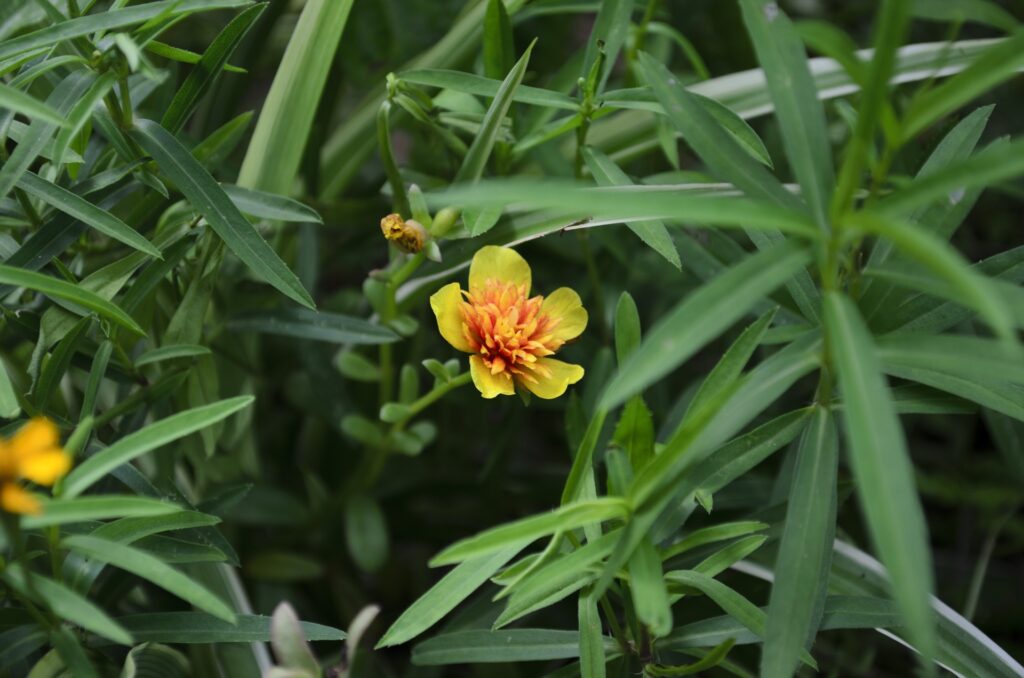
Tarragon, known by the name Artemisia dracunculus is an aromatic herb with sweet, lemony scent, which qualifies to be a suitable replacement for coriander.
This herb is slightly peppery and tastes similar to fennel, and anise.
French cuisine makes the most use of tarragon in their dish.
For those who don’t know what tarragon looks like, the leaves are floppy, and narrow, growing from a slender stem.
They are a perfect substitute to coriander and can be incorporated liberally into rubs or to marinate fish, lamb, and poultry to give the refreshing aromatic scent.
Tarragon contains a high amount of nutrients and minerals such as omega-3 and omega-6 fatty acids niacin, riboflavin, vitamin A and C, calcium, iron, potassium, magnesium, and manganese.
The use of tarragon can help with various health problems like digestion problems, menstrual problems, toothaches and helps in water retention [11].
READ MORE: 12 Pain-Relieving Essential Oils for a Toothache
Cilantro Vs. Coriander: Are They the Same?
Both the cilantro and coriander come from the same plant species, i.e., Coriandrum sativum [1].
The usage of coriander in dishes is quite popular in the Indian subcontinent and the Middle Eastern countries.
However, people living in different regions have different ways of naming Coriander.
The change in naming is what makes all the difference!
Cilantro is mainly used to refer to the fresh leaves of the coriander plant, whereas coriander, in general, refers to the coriander seed or ground coriander in the United States.
In the United Kingdom, most of the people refer “coriander” to the fresh leaves and the seeds as coriander seed or ground coriander.
Apart from the name, they also have different ways of being cooked in dishes:
Cilantro Dishes
Cilantro when added in a meal, isn’t cooked for an extended period as they tend to lose their flavor. Some of the cilantro dishes include:
- Salsa
- Chutney
- Acorda
- Soups
- Guacamole
Coriander Seed Dishes
They are used to create a warmer and spicier taste in dishes and are tend to cook for a longer period. Some of the coriander seeds dishes include:
- Curries
- Rice dishes
- Soups and Stews
- Meat Rubs
- Pickled vegetables
- Borodinsky bread
Bottom Line
There is nothing worse than running out on something that we need, especially when guests plan to show up.
Coriander, a versatile herb is used in many dishes all over the world.
its flavor is essential to bring out the aroma of a tasty dish.
In almost all the grocery shops you can find coriander.
Unfortunately, some people detest the taste of it, probably due to its chemical composition aldehyde.
Using substitutes for coriander is essential to maintain the taste of the dish.
READ NEXT: 9 Amazing Health Benefits of Paprika: Uses & Recipes
